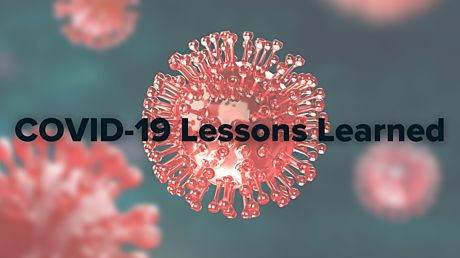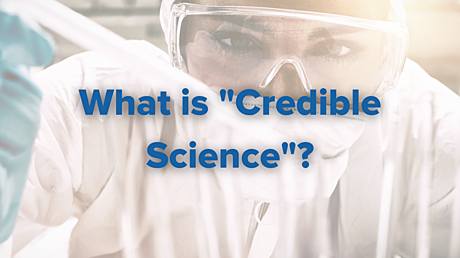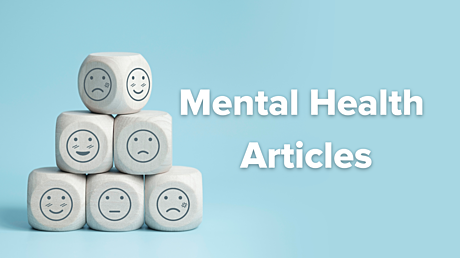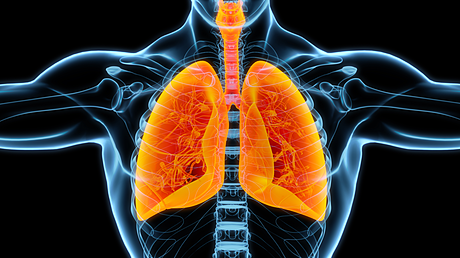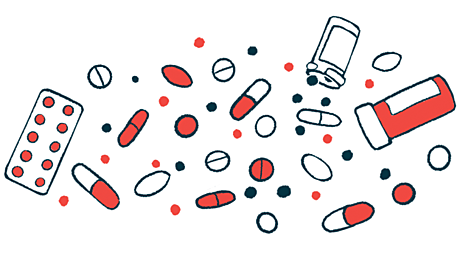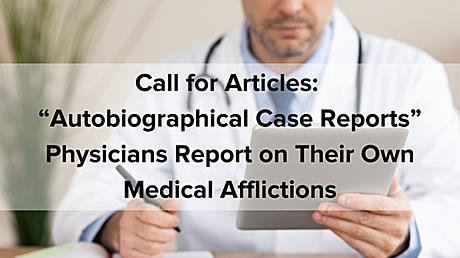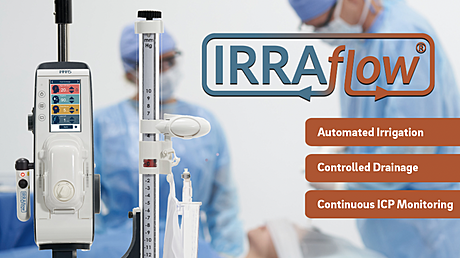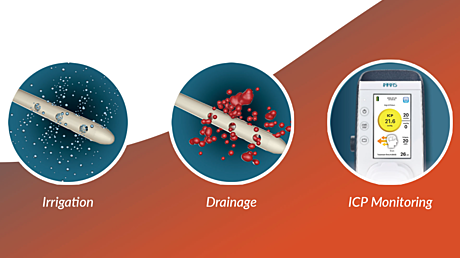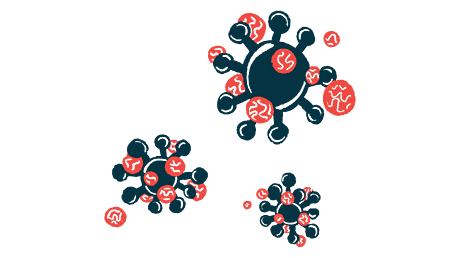Newsroom
The Clinical & Public Health Implications of Abortion Bans & Restrictions
We would like to thank all of the authors who participated in this call for submissions. The Supreme Court’s decision to overturn Roe v. Wade has major national public health repercussions. While abortion has long been a hot topic in the political arena, we believe it should be viewed through a clinical and public health lens, not via one’s political ideology. We hope this initiative will help raise awareness and prompt discussion about abortion, reproductive rights and maternal mortality. While the United Stated Supreme Court decision to overturn Roe v. Wade prompted this call for articles, we understand that abortion access and reproductive rights are a global topic affecting people all over the world. Read the articles below: Abortion Is a Right: Perspectives of Family Medicine Physician Residents The Relationship Between Access to Abortion and Mental Health in Women of Childbearing Age: Analyses of Data From the Global Burden of Disease Studies Isotretinoin, Vitamin A Supplements, and Unintended Pregnancies in Post Roe v. Wade America The Interest in Permanent Contraception Peaked Following the Leaked Supreme Court Majority Opinion of Roe vs. Wade: A Cross-Sectional Google Trends Analysis The Medical and Financial Burden of Illegal Abortion Effects and Proposed Countermeasures of Abortion Bans and Restrictions on People With Uteruses and Society Looking for a Silver Lining to the Dark Cloud: A Google Trends Analysis of Contraceptive Interest in the United States Post Roe vs. Wade Verdict Misadventure of an Unsafe Abortion Sexual Debut, Sexual Education, Abortion, Awareness and Prevalence of Contraceptive Among Female Undergraduates Students in Public and Private Universities in Ekiti State, Nigeria
Nov 17, 2022
Read the Articles: COVID-19 Retro Call for Submissions
We’d like to thank all of the authors who participated in our retrospective on Covid-19. The objective of this call for submissions was to focus on what the world of medicine and public health got right in its approach to this pandemic, but even more so, where did we all go wrong and why? The hope is that a scholarly post-mortem now can inform better decision making today, while also perhaps improving hospital care and public health measures in future pandemics. Click below to read the published articles on this topic, and stay on the lookout for new calls for article submissions on major clinical topics.
Oct 18, 2022
What is "Credible Science"?
by Dr. John Adler At the heart of every peer-reviewed journal is a publication philosophy. Most popular medical journals focus on “important” medical science. However, from my vantage point as a career scholar, “importance” is an ethereal “eye of the beholder” standard which inevitably feeds reviewer bias; one day a topic is hot but soon thereafter journals have lost interest, simply mirroring trends in the broader culture. Meanwhile author provenance also tends to weigh heavy on reviewer decisions about importance; even double-blinded review is not truly blind in the deeply specialized world of medicine in which we live. In contrast, from an author’s vantage, journal acceptance or rejection decisions tend to be rather capricious; submit to a journal (i.e. not Cureus), wait for the rejection before reformatting and resubmitting to a second journal, and repeat as many times as necessary to be published. Although this practice is a huge waste of everyone’s time, it has forever been the modus operandi for a journal industry obsessed with identifying and publishing “important” medical science. Given the colossal time inefficiency of the current journal paradigm, as well as the real-world expense associated with such subjective decision making, Cureus’ philosophy has been to embrace a very different threshold for publication, which we term “credible medical science”. What do we mean by the term “credible” science? “Credible science” is published science that simply reflects a “good faith” effort to ask and answer a relevant medical question. It involves care in collecting and analyzing data, then writing and formatting a proper manuscript, and finally responding appropriately to reviewer questions. At the end of this elaborate process, Cureus’ credible science may or may not ultimately be proven correct via future confirmatory studies. Even though this is and always has been the identical reality for every other published peer-reviewed journal, Cureus' willingness to live without the charade of article importance miffs some (self-anointed) high priests within academic publishing. Furthermore, a lazy news media has grown comfortable with the axiomatic fig leaf that peer-reviewed science is, drum roll, absolute truth. The absence within Cureus of an absolute truth façade that our “credible science” standard accepts is disorienting to those who prefer a black-and-white world while blissfully ignoring the countless examples of once important scientific articles, published in the “best” journals, that are eventually debunked. My point is that no peer review process is ever foolproof and like everything in life, when it comes to interpreting published science in ALL journals, the old adage “buyer beware” applies. What is presented on the written digital or analog page must, like other forms of human communication, always be interpreted by an engaged reader. Cureus’ “credible science” standard is, at its core, a grown-up acknowledgement of reality. Now I understand that Cureus’ disinterest in article “importance” is particularly irksome to some industry insiders who have made long careers defining and evangelizing on behalf of (and benefitting from) “important” (supposedly) medical science. Cureus' commonsense standard for “credible science” and our journal’s refusal to censor unpopular (unimportant?) ideas does occasionally rankle critics. However, I am struck by the fact that some of the most vociferous critics of our “credible science” philosophy have themselves almost zero experience publishing real science in real medical journals. I liken most of these experts to the proverbial guy on the couch drinking beer and watching Sunday football on TV. How often is the guy futilely telling the coach on the field how to do his job, himself a former professional star with deep domain knowledge of football? Almost never! Nearly always, the critic is just another dude with an opinion. Nevertheless, if you really know how to call better plays for a professional football team, I urge you to get with it and become a highly-paid coach. Meanwhile, if you think you know how to create better science, and publish better articles, please be my guest and allow our journal to make the process as effortless as possible. Important or not, all that Cureus demands is that your science be ”credible”.
Sep 29, 2022
Cureus Call for Submissions: Mental Health Awareness
Mental Health Awareness Thank you to everyone who submitted to our "Mental Health Awareness Call for Submissions." Each year millions of people all over the world face the reality of living with a mental illness. We hope these submissions will help raise awareness and prompt discussion about mental health. Please find the articles below. Exploration of the Role of Relationships and Virtual Learning on Academic Performance and Mental Health The Correlates of Government Expenditure on Mental Health Services: An Analysis of Data From 78 Countries and Regions Prevalence of Anxiety Disorder in Adolescents in India: A Systematic Review and Meta-Analysis Role of Art Therapy in the Promotion of Mental Health: A Critical Review The Impact of COVID-19 on Postpartum Depression and the Responsibility of the Healthcare System Twitter as a Knowledge Translation Tool to Increase Awareness of the OpenHEARTSMAP Psychosocial Assessment and Management Tool in the Field of Pediatric Emergency Mental Health Charles Bonnet Syndrome With Superimposed Delirium Michigan Marijuana Legalization: Correlations Among Cannabis Use, Mental Health, and Other Factors Knowledge, Attitude, and Practices of Pregnant Women Towards COVID-19: An On-site Cross-sectional Survey The Inmate Who Continues to Seize: Delayed Diagnosis of Zolpidem Withdrawal Due to Functional Mimics Use of Artificial Intelligence-Based Strategies for Assessing Suicidal Behavior and Mental Illness: A Literature Review Rectal Foreign Bodies: Surgical Management and the Impact of Psychiatric Illness Diagnostic Delays and Psychosocial Outcomes of Childhood-Onset Systemic Lupus Erythematosus “Doctor, You Must Examine My Creature Collection!”: A Case Report of Delusional Infestation A Case of Coexisting Depression and Hoarding Disorder Waiting for Care: Length of Stay for ED Mental Health Patients by Disposition, Diagnosis, and Region (2009–2015) Psychoactive Drugs in the Management of Post Traumatic Stress Disorder: A Promising New Horizon Factors Associated With Resilience Among Healthcare Professionals During the COVID-19 Pandemic: A Cross-Sectional Study Stress and Inflammatory Bowel Disease: Clear Mind, Happy Colon On Patterns of Neuropsychiatric Symptoms in Patients With COVID-19: A Systematic Review of Case Reports
Aug 29, 2022
Monkeypox Information Center
Looking to learn more about Monkeypox? This page provides access to all Cureus-published Monkeypox articles. These articles include information on transmission, prevention, diagnosis, treatment, and a history of the disease. "The World Health Organization (WHO) recently declared the monkeypox virus a Public Health Emergency of International Concern (PHEIC). As the cases of the COVID-19 pandemic start to get under control, we have seen the monkeypox virus, found predominantly in Africa, spread in non-endemic countries worldwide. In the 1970s, after the smallpox virus eradication and the vaccine's discontinuation, the monkeypox virus infection started to gain attention. The first United States outbreak happened in 2003; since then, more sporadic cases of monkeypox have gained media attention." 1 Read the full article: Prevention and Treatment of Monkeypox: A Step-by-Step Guide for Healthcare Professionals and General Population Click below to access our library of Monkeypox articles to learn more about this infectious disease.
Aug 22, 2022
Radiological Determinants of Thromboembolic Events in COVID-19 Pneumonia: A Retrospective Study
Read the full story from healthimaging.com "New research highlights key CT findings that radiologists should be aware of when interpreting the exams of patients with COVID pneumonia. The paper details an analysis of 276 COVID patients and how their image findings correlated to their experiences with thromboembolic events. Corresponding author of the paper Mohd Ghadeeb, MD, from the Radiology Department at King Fahad Hospital in Saudi Arabia, and colleagues explained the importance and challenges involved in understanding COVID patients’ risks of clotting complications recently in Cureus: 'Thromboembolic manifestations have a wide spectrum and vary significantly among different patients. These include venous thromboembolic events, arterial events, and microvascular thrombosis,” the researchers wrote. “The diagnosis of venous thromboembolic events, including deep venous thrombosis and pulmonary embolism, can be challenging due to overlapping clinical and laboratory features.'"
Aug 11, 2022
A-Fib Linked to Worse Hospital Outcomes in Multiple Myeloma
A Cureus article was recently highlighted in HealthDay. In stratified analysis, odds of all-cause mortality, hospital stay of more than five days higher for MM patients not using anticoagulation Overall, 13.1 percent of hospitalized patients with multiple myeloma (MM) have atrial fibrillation, which is associated with worse outcomes, according to a study recently published in Cureus. Inimfon Jackson, M.D., M.P.H., Ph.D., from Einstein Medical Center in Philadelphia, and colleagues conducted a retrospective cohort analysis using data from the National Inpatient Sample from 2016 to 2018 to explore the prevalence of atrial fibrillation among MM patients and the impact of atrial fibrillation on outcomes. The researchers found that 13.1 percent of the 68,267 hospitalizations with a diagnosis of MM reported having atrial fibrillation. Compared with those without atrial fibrillation, MM patients with atrial fibrillation had increased odds of inpatient all-cause mortality (adjusted odds ratio, 1.16)... You can read the full HealthDay article here.
Jul 21, 2022
A Case of Idiopathic Cold Agglutinin Hemolytic Anemia Successfully Treated With Steroids
Read the full story from coldagglutininnews.com. A 71-year-old woman with primary cold agglutinin disease (CAD) was successfully treated with the glucocorticoid prednisone, a case study reported. Its scientists noted that primary CAD typically does not respond to glucocorticoids, but in particular instances like this case, it can. The study, “A Case of Idiopathic Cold Agglutinin Hemolytic Anemia Successfully Treated With Steroids,” was published in the journal Cureus. In CAD, autoantibodies known as cold agglutinins bind to red blood cells at low temperatures, causing them to clump together and die in a process called hemolysis. While in primary CAD the cause of the disease is unknown, secondary CAD is associated with an underlying illness, such as an infection, another autoimmune disorder, or some types of cancer.
Jun 10, 2022
Submit Your "Autobiographical Case Report"
Submit your "autobiographical case report." *Now accepting submissions indefinitely. Physicians bring a unique perspective to the understanding of any disease and are often poised to provide lifelong outcomes for chronic diseases and/or their treatments. Many doctors are sitting on a treasure trove of medical knowledge learned firsthand through life experience - insights that never get reported in big clinical studies. Countless potential patients and their physicians can benefit from your wisdom. It’s time to tell your story in a Cureus case report! Please add “Autobiographical Case Report” as a keyword in your submission. We understand you may not have images related to your case, but we strongly encourage you to include any images you do have. Take a look at this published example and submit your case report (all specialties accepted) for the opportunity to be featured on a devoted Autobiographical Case Report page!
May 03, 2022
Presentation Documenting Use of IRRAflow System Confirms Potential Improved Outcomes Compared to Traditional Drainage Solutions
Sponsored by IRRAS Presentation of Largest Dataset to Date Documenting Use of IRRAflow System Confirms Potential Improved Outcomes Compared to Traditional Drainage Solutions The neurosurgery team from the Rockefeller Neuroscience Institute at West Virginia University and WVU Medicine Ruby Memorial Hospital (WVUH), led by Dr. Nicholas Brandmeir, presented the clinical outcomes from the first 45 patients they treated with the new breakthrough technology, IRRAflow, a dynamic system that provides a therapeutic approach to treating intracranial bleeding. The data presented confirms the preliminary effectiveness of the IRRAflow system’s automated irrigation by showing a 0% occlusion rate during the entire course of treatment. On the other hand, clinical literature documents that traditional passive drainage solutions have catheter occlusion rates of up to 47%.1 Additionally, IRRAflow’s mechanism of action was also shown to more effectively remove collected blood after intracranial bleeding. The average treatment time with IRRAflow was 6.8 days, and only 13% of patients required the placement of a shunt after IRRAflow treatment. This percentage of shunt dependence with IRRAflow compares favorably to data from the CLEAR-III where 18% of patients required shunt placement after treatment with a passive ventricular drain. Click the image above to view the PDF and learn about how preliminary data confirms that IRRAflow might reduce rates of catheter occlusion, infections, symptomatic and radiographic vasospasm. 1. Fargen KM, Hoh BL, Neal D, O’Connor T, Rivera-Zengotita M, Murad GJ. The burden and risk factors of ventriculostomy occlusion in a high-volume cerebrovascular practice: results of an ongoing prospective database. Journal of Neurosurgery. 2015:1-8.
Mar 29, 2022
Drainage, Irrigation, and Fibrinolytic Therapy (DRIFT) for Adult Intraventricular Hemorrhage Using IRRAflow®
An article on drainage, irrigation, and fibrinolytic therapy (DRIFT) for adult intraventricular hemorrhage published in Cureus was picked up by Medical Device News Magazine Read the Cureus article here: Drainage, Irrigation, and Fibrinolytic Therapy (DRIFT) for Adult Intraventricular Hemorrhage Using IRRAflow® Self-Irrigating Catheter Article from Medical Device News Magazine *Thumbnail image from https://irras.com/
Mar 22, 2022
COVID-19 Infection Can Worsen CAD Symptoms, Report Highlights
COVID-19 can worsen symptoms of cold agglutinin disease (CAD), a recent case report highlights. The scientists stressed the need for further research to determine the best ways to care for people with new or worsening CAD that develops in the context of a COVID-19 infection. In this case, treatment with remdesivir and dexamethasone resulted in “significant improvement in the patient’s condition,” they wrote. Read the full article from Cold Agglutinin Disease News here.
Mar 14, 2022

